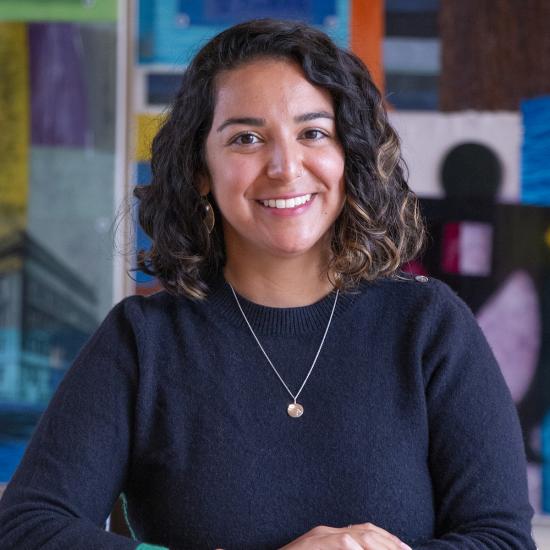Priscilla Villa-Watt Used the Community Equity Program to Enhance her Public Policy Skills While Building a Community
After working to strengthen environmental protections in Texas, Priscilla Villa-Watt moved to Minnesota in 2019 to become the advocacy and public policy manager for Eureka Recycling, a nonprofit zero waste organization and social enterprise recycler. Priscilla had relevant work experience as an organizer, a master’s degree in anthropology, and the opportunity to advocate for zero-waste laws at the state and federal levels.
As a newcomer to the state, though, Priscilla wasn’t familiar with the inner workings of the Minnesota Legislature and the intricacies of policymaking in the state – and she wanted to build her network. She leapt at the opportunity to join Wilder’s Community Equity Program, a nine-month, immersive program that supports Black, Indigenous and people of color (BIPOC) to influence and enact public policy at Minnesota's Capitol. “It felt like a great time to be a part of the program, given where I was in my career,” she says.
Community Equity Program combines information with support and network building
Through the Community Equity Program, Priscilla and her cohort gathered by Zoom twice monthly to learn about timelines and how the advocacy and public policy process works in Minnesota. They met with legislators, lobbyists and policy experts who talked about their work, and they gained practical experience by working with coalitions before and during the Legislative session.
Priscilla says her group’s work with the Children’s Defense Fund gave her an inside view of ways to strengthen coalitions and create strategies that persuade people to take action on a bill or to defend against a proposal. “Just being in these spaces and learning what that was like first hand was really, really interesting to see,” she says.
As they learned and grew, Priscilla and other participants became a community of people with similar professional and personal interests who are experiencing the Capitol – long populated primarily by white people – as BIPOC advocates and policy experts.
“We started talking about the fact that we can’t always show up as our authentic selves in those spaces,” she says. “We’re not taken as seriously if we’re not dressed a certain way, if we don’t sound a certain way. All of that has an impact. Just to being able to name it and talk about that, it gives me more confidence going in and doing that work because there are all these other people who are feeling that, too.”
Priscilla appreciates having space to process challenging community events
The Community Equity Program has long been a space for participants to discuss the impact of public policy work on BIPOC people’s well-being as they build strong networks, but the 2020-21 cohort of the program dealt with additional stressors: They were doing policy work during the isolation, economic disruption and other effects of the pandemic, and the racial justice uprising in the Twin Cities and across the U.S.
During challenging moments in the last year, program facilitators Miah Ulysse and Jasmine Carey made time for participants to process events in their lives and communities before they started each meeting. For Priscilla, who is still settling in Minnesota, the time to check in was critical. “I just couldn’t be more appreciative of them, and in fact when some of these harder things happen, that I look forward to the meeting because my cohort is the closest thing I have to community at this point,” she says.
With networks and knowledge, Priscilla is ready for next year
As the Community Equity Program cohort wrapped up their work for the year, Priscilla had already adjusted her strategies and approach to her work. During the last year, when she had a question about a bill that could go to the governor’s office, Priscilla had a connection through her new network who could tell her who to talk to and how to work effectively. She had support as she sought an author for a bill her organization wanted to propose and a plan for the next Legislative session.
“Having those resources helped me be more confident,” says Priscilla, who recently moved into a public policy role at Voices for Racial Justice. “The fact that I’ve had people to lean on as I went along was just so, so helpful."
